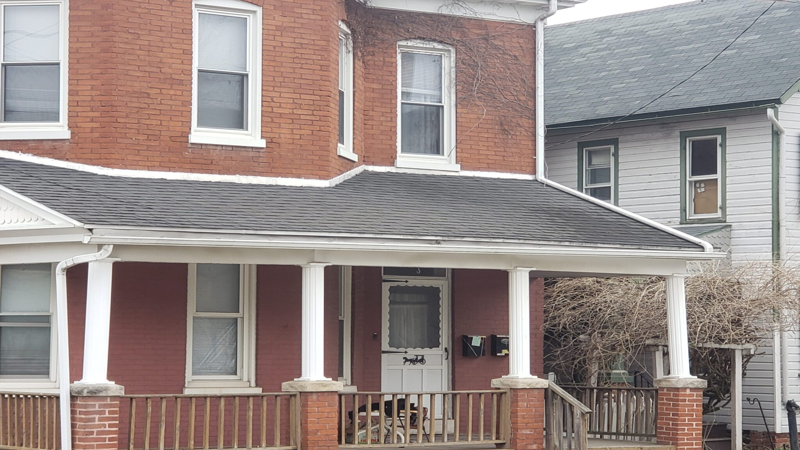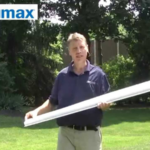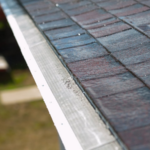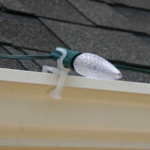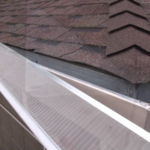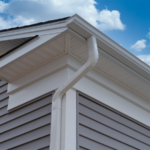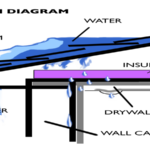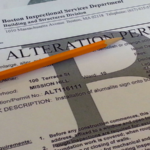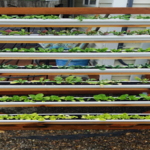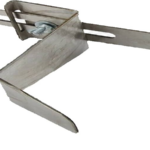Are you ready for the rainy season in Raleigh? If you’re like most people, you probably don’t give much thought to your gutters until they’re clogged or overflowing. But if you want to avoid costly repairs to your home, it’s important to keep them in good working order. That’s where professional gutter installation comes in.
A good gutter system will protect your home from water damage by channeling rainwater away from your foundation and roof. It will also help prevent landscaping problems by directing water to where it can drain properly. And, in Raleigh, where we get an average of 43 inches of rain per year, gutters are a must-have for any home.
When you’re ready to install new gutters or replace your old ones, call on the experts at Raleigh Gutter Service. We’ve been providing quality gutter installation and repair services to Raleigh homeowners for over 15 years. We’ll work with you to choose the best gutters for your home and budget, and we’ll install them properly so you can rest assured they’ll do their job.
Give us a call today to learn more about our gutter installation services, or to schedule a free consultation.
What is the best season to replace gutters?
There are multiple factors to consider when deciding the best time to replace your gutters. The most important factor is the weather. You want to make sure to avoid times of heavy rain or snowfall, as this can obviously impede your progress. Spring and fall are typically the best times to replace your gutters, as the weather is more mild and predictable.
Another factor to consider is the type of gutters you have. If you have wooden gutters, you may want to replace them more frequently, as they are more susceptible to rot and damage from the elements. Aluminum gutters, on the other hand, are much more durable and can last for many years.
Finally, you should also consider the condition of your gutters. If they are starting to show signs of wear and tear, it may be time for a replacement. This is especially true if you notice any leaks or cracks.
Do gutters work in heavy rain?
Gutters are designed to protect your home from water damage by channeling water away from your roof and foundation. They are most effective when they are clear of debris and properly maintained. However, even the best-designed and maintained gutters can’t always prevent flooding during a heavy rainstorm.
There are a few factors that can contribute to gutters overflowing during a storm, even if they are otherwise in good condition. The angle of your gutters may cause water to pool in certain areas instead of flowing freely to the downspout. If your gutters are too small for the size of your roof, they may not be able to handle the volume of water coming off of your roof during a heavy rain. And finally, if there is any kind of blockage in your gutters, such as leaves or twigs, this can also cause them to overflow.
If your gutters do overflow during a storm, it is important to take action immediately to prevent water damage to your home. First, remove any debris from your gutters so that they can start draining properly again. You may also need to increase the size of your gutters or add additional downspouts to help them handle a larger volume of water. Finally, make sure that your gutters are properly angled and pitched so that water flows freely to the downspouts.
What is the best gutter for rain?
There are many types of gutters available on the market, but not all of them are created equal. When it comes to choosing the best gutter for rain, there are a few things you need to take into consideration.
The first thing you need to think about is the material the gutter is made from. There are a few different options available, including aluminum, plastic, and even copper. Each material has its own benefits and drawbacks, so you’ll need to decide which one is right for you based on your own needs and preferences.
Another important factor to consider is the size of the gutter. You’ll need to make sure that the gutter you choose is large enough to handle the amount of rainwater that your home receives. If you live in an area with a lot of rainfall, you’ll need to choose a larger gutter.
Finally, you’ll also need to think about the style of the gutter. There are a few different options available, including traditional gutters, seamless gutters, and even leaf guards. Each option has its own set of pros and cons, so you’ll need to decide which one is right for you based on your own needs and preferences.
What is the rule of thumb for gutters?
There is no definitive answer to this question as there are a number of factors to consider when deciding on the size and type of gutters for your home. However, a general rule of thumb is that the gutters should be at least 4 inches wide in order to adequately collect and channel water away from the home. Additionally, it is important to make sure that the gutters are properly installed and maintained in order to prevent leaks and water damage.
Should I replace 20 year old gutters?
If your gutters are more than 20 years old, it’s probably time to replace them. While gutters don’t have an expiration date, they do deteriorate over time. If your gutters are made of wood, they’re especially susceptible to rot and decay. Metal gutters can also rust and deteriorate. Even if your gutters are still in good shape, it might be time to replace them if they’re not functioning properly. If your gutters are sagging, leaking, or overflowing, it’s time for new ones.
What type of gutters last the longest?
Aluminum Gutters: These gutters are a popular choice because they are relatively inexpensive and they resist corrosion. They can last anywhere from 20 to 40 years, depending on the quality of the gutters and how well they are maintained.
Copper Gutters: Copper gutters are more expensive than aluminum gutters, but they are also more durable. Copper gutters can last up to 100 years with proper maintenance.
Vinyl Gutters: Vinyl gutters are a popular choice because they are low-maintenance and they resist corrosion. They can last anywhere from 20 to 40 years, depending on the quality of the gutters and how well they are maintained.
How do I stop my gutters from overflowing in heavy rain?
There are a few things you can do to stop your gutters from overflowing in heavy rain. First, make sure that your gutters are clean and free of debris. This will allow the water to flow freely through the gutters and not get backed up. Secondly, you can install a gutter guard or screen over the top of the gutters to keep leaves and other debris from getting into the gutters and causing a blockage. Finally, you can extend the downspouts away from the foundation of your home to ensure that the water has a place to go and won’t just sit next to your foundation and cause problems.
Do I need rain gutters all around my house?
No, you don’t need rain gutters all around your house, but they can be a good idea in certain situations. For example, if your house is in an area that gets a lot of rainfall, gutters can help to prevent water damage to your home. They can also help to keep your foundation from eroding.
Final Word
As the rainy season approaches, it’s important to make sure your home is prepared. One way to do this is to have professional gutter installation done. This will help ensure that your home is able to properly handle the increased amount of rain and runoff. Contact a local gutter installation company today to get started.
